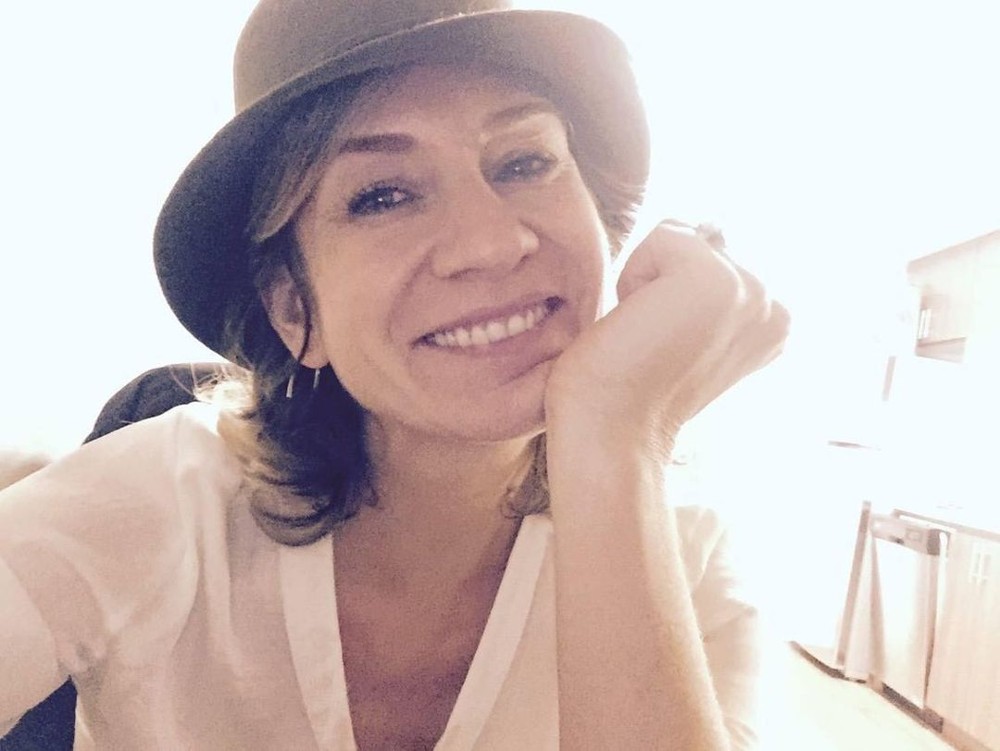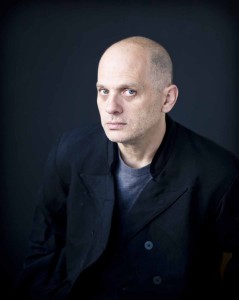
For composer David Lang, his journey with the project took place very early on in the process. “I spoke with Paolo about the film even before the script was finished. Even before the casting was finished, I was already done working on the music for the movie,” Lang recalled. In those early conversations with the director, Lang realized the importance of the music in context its characters, especially for Ballinger. “One of the reasons the music is so intrinsic to the storyline is because Paolo made the star of the film a composer. We’re usually not the stars of a film and Paolo’s decision to do so put this film down a course that was unique.”
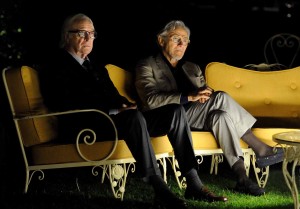
In order to transform the music into its final aural anatomy, Lang developed various themes for Sorrentino to decide upon. “I asked Paolo in the beginning what he had in mind and the only thing he shared with me is that it had to be emotional and romantic. He didn’t advise me to do anything special to the music. So from the start, I kept showing him different things and he kept responding with comments, molding them towards where he wanted them to be. Paolo is great working with music, he is an amazing listener in how he edits with the music – he listens to it so carefully. He doesn’t know the technical language of music so the way he would respond was by saying that it needed to be faster, shorter, longer, and I would fine tune everything and send it back to him. In truth, he had a very specific idea of what the music needed to be, but for his process, he wanted to hear it before he would comment on if it would work.”
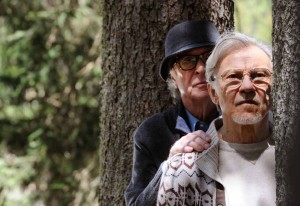 Drawing inspiration for those themes took Lang to a new place of creativity. “I personally love being a composer, and I wanted this film’s music to feel accurate on a very emotional level. Fred has a difficulty talking to other people about how he feels and his communications with everyone around him are limited. It’s only music that allows him to be honest with himself. Through music, he’s able to express his own emotional feelings, in the way he cannot express them with words to the people who surround him. So every time there is music, you’re inside his own conversation within himself. I think that’s how music works for a composer. There are certain things that we can’t say to the people around us that we feel are true. We use music to get to what’s true to ourselves.”
Drawing inspiration for those themes took Lang to a new place of creativity. “I personally love being a composer, and I wanted this film’s music to feel accurate on a very emotional level. Fred has a difficulty talking to other people about how he feels and his communications with everyone around him are limited. It’s only music that allows him to be honest with himself. Through music, he’s able to express his own emotional feelings, in the way he cannot express them with words to the people who surround him. So every time there is music, you’re inside his own conversation within himself. I think that’s how music works for a composer. There are certain things that we can’t say to the people around us that we feel are true. We use music to get to what’s true to ourselves.”
That emotional range for the music took an insightful path for Lang as well. “I wanted it to feel like the music was larger than just being good or bad or sad or happy. I wanted it to feel like it was full of real emotions – which are often times complicated.” Especially for Fred, Lang wanted the music capable of holding all of his emotions. “There is this beautiful line in the film where Fred runs into a boy who’s playing a piece of his music and he says, ‘I wrote this piece when I was young, when I still loved.’ It’s so sad when you think of love like that. So you want to capture some of that sadness, that love means something different to Fred at the end of his life than it did in the very beginning. But you also need some of the optimism and intensity and hope of when he is young. I wanted the emotions in “Simple Song #3” to come out like real emotions – complicated. Not black and white.”
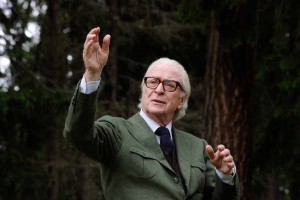 The story slowly builds towards Fred conducting one of his most famous pieces of music, “Simple Song #3” – a piece of music the Queen of England asked him to conduct, but he vowed to never perform it again. “It’s a song Fred wrote for his wife,” said Lang. “I thought of this climax as a great gift, that the whole film leads up to this place. I wanted it to feel as if we had been in the presence of Fred thinking about this song for the entire film.” It’s in a very early scene of Youth were we first learn about “Simple Song #3,” but Lang scattered little musical nuances across the film that tie us to it. “We added what would be little markers that pointed at it. So the candy wrappers you hear are like the rhythm of the violin in the song. The harmony of when Fred goes out and conducts the cows is the same harmony of the second part of the song – so, as an audience, when we finally hear it we’re ready for it,” said Lang.
The story slowly builds towards Fred conducting one of his most famous pieces of music, “Simple Song #3” – a piece of music the Queen of England asked him to conduct, but he vowed to never perform it again. “It’s a song Fred wrote for his wife,” said Lang. “I thought of this climax as a great gift, that the whole film leads up to this place. I wanted it to feel as if we had been in the presence of Fred thinking about this song for the entire film.” It’s in a very early scene of Youth were we first learn about “Simple Song #3,” but Lang scattered little musical nuances across the film that tie us to it. “We added what would be little markers that pointed at it. So the candy wrappers you hear are like the rhythm of the violin in the song. The harmony of when Fred goes out and conducts the cows is the same harmony of the second part of the song – so, as an audience, when we finally hear it we’re ready for it,” said Lang.
To create “Simple Song #3,” the composer went to a very dark place to discover its tone. “Right now, I’m not 82 years-old and I really had to get in the mindset of being that person. I had a vague idea of who this person might be in the script, but Paolo didn’t tell me to accomplish any certain thing,” noted Lang. “I thought about what my life would be like looking back, with the joy and the sadness of having a love and then having that love end. I had to make myself truly miserable in order to write the piece.”
Looking back Lang admits that if he had been able to read the script beforehand or see an edit of the film, the music would have taken a different turn. “The greatest thing about writing the music before seeing the visuals is it allowed me to go to such an emotional place. If I had been able to see the visuals and the acting and the edits before writing the music, it might have kept me from going so far inside myself. This film was such an amazing experience and if I had done it any other way, I don’t think I would have been able to get it right.”




